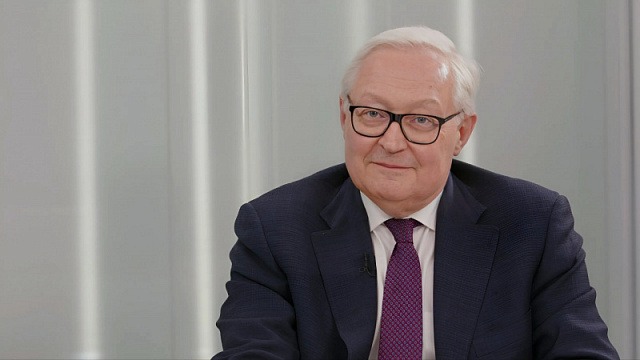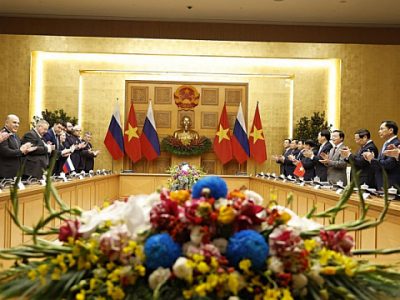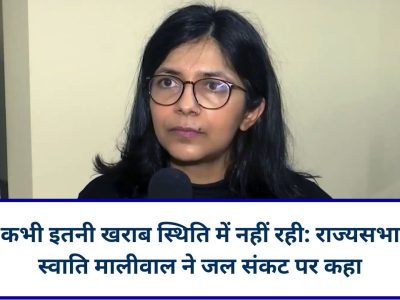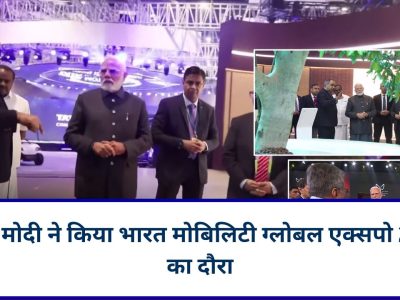Sergey Ryabkov, after graduating in 1982 from the Moscow State Institute of International Relations (MGIMO of the Russian Ministry of Foreign Affairs), worked in various diplomatic positions in the central apparatus of the Russian Ministry of Foreign Affairs and abroad. Since August 2008, he is the Deputy Minister of Foreign Affairs of the Russian Federation. Among others, he is in charge of bilateral relations with the countries of the Americas and Russia’s participation in BRICS. He holds the diplomatic rank of Ambassador Extraordinary and Plenipotentiary. He was awarded the Order IV Class “For Merit to the Fatherland”, the Order of Honour and the Order of Friendship.
In an exclusive interview with TV BRICS, he spoke about what to expect from Russia’s chairmanship of the group.
Five new countries – Iran, Egypt, Saudi Arabia, United Arab Emirates and Ethiopia – joined BRICS on 1 January 2024. How has the enlargement of the association affected the concept of the Russian Chairmanship this year?
I would like to say that we entered 2024 with no historical experience of expanding unification. It wasn’t clear how the lapping process would go and what would come of it. But today, with a third of the Chairmanship behind us, the engagement has gained full momentum and we are moving at an increasing pace towards success. I’m pretty sure of it. I think that the summit in Kazan this October will mark the achievement of new heights in the interaction between the BRICS countries.
At the end of one third of our chairmanship, we can state that the leaders have taken a decision that has made BRICS unequivocally stronger. It has declared itself even louder as an influential system of interaction, a key link in the emerging architecture of a multipolar world.
It is also important how exactly the accession of new countries to BRICS took place. These states were invited on an equal basis with the founders. Any decisions in the group are made by consensus.
The date of 1 January, set as the official accession day, allowed us to prepare properly for the presidency watch. Its concept was approved in November 2023. At that time we already realised that invitations to a number of countries had been agreed and issued.
During the BRICS Chairmanship, the Russian side will continue its work in all three key areas: politics and security, economy and finance, and humanitarian co-operation. It is worth considering that there has been no example of an entity doubling its membership so far.
We are moving forward, setting an important precedent. I am glad that all the members of the association co-operate in a friendly manner, working for results, nobody imposes anything on anyone.
The Chairmanship’s programme is extensive, with a calendar of more than 250 diverse events. All this will be realised in full compliance with the BRICS traditions.
You have already held bilateral meetings with colleagues from Ethiopia, Saudi Arabia, the United Arab Emirates. What will the new BRICS members be able to bring to the work of the association?
We have held bilateral meetings at various levels with representatives of all countries that joined BRICS on 1 January. There have already been several rounds of such contacts with some of them. On 30 January-1 February, the first start-up meeting of BRICS Sherpas and Sous-Sherpas was held in Moscow. All agencies, ministries involved in working with BRICS used this format to present programmes, conceptual approaches of Russia’s 2024 Chairmanship. I think we have strong support for our priorities. More meetings at this level will soon be forthcoming. It can be said that Sherpas and Sous-Sherpas are the key coordinating tool for all work in BRICS.
We assume that each of the new recruits will bring something new and provide added value to the group. Basically, the rich history, historical roots, cultural traditions of the newcomers who joined the association speak for themselves. All this enriches the BRICS palette.
What do you think needs to be done to make it as easy and quick as possible for newcomers to integrate into the multilateral co-operation architecture? And how can Russia’s chairmanship contribute to this?
It is worth mentioning that all the newcomers show great enthusiasm. They are ready to work substantively and professionally on the agenda that the Russian Chairmanship has developed in consultation with all participants. The second thing, of course, for some of the new recruits, the volume and scope of the work that we are doing in BRICS was a bit of a surprise. It is not even so much the number of events, but rather the multi-level mechanism of interaction, formats in which new ideas and certain traditions are worked out, initiatives are introduced into the fabric of BRICS work, and they are implemented. It all takes some adjusting and getting used to. That’s the process that’s happening now. We are confident that more than 20 Russian ministries and agencies directly cooperating with BRICS partners have accumulated such an impressive experience of interaction that it will in itself prove to be a catalyst that will ensure a quick and uninterrupted “onboarding” of new recruits.
Unification is moving forward. The Ten are beginning to demonstrate cohesion on international platforms. A joint statement of the BRICS countries was recently adopted at the UN Environment Assembly held in Nairobi. The members of the association make themselves known in a constructive manner on as wide an agenda as possible.
Russia’s current BRICS chairmanship has a rather extensive agenda related to finance: enhancing the role of member countries in the international monetary and financial system, developing interbank co-operation and settlements in national currencies. What else will be emphasised?
In practical terms, several options are considered. For example, settlements in stable coins or the option of creating a platform that would unite the financial systems of its members (the so-called BRICS Bridge, which implies the docking of the existing systems of digital currencies of central banks in the BRICS countries). The possibility of interconnecting national financial messaging systems is being discussed. Well here the finance ministers and central bank governors have had their contacts. The face-to-face meeting was held in February in Sao Paulo.
With the digitalisation of many banking processes, security in the storage and transmission of data is at the forefront. We have already established a special channel for information exchange between central banks and approved regulations for co-operation in the field of information security. The focus of the Russian BRICS Chairmanship will also be on enhancing co-operation in such areas as science, innovation and healthcare. Can you elaborate on that a little bit more?
There is an action plan on innovation cooperation, as well as a network of BRICS centres for technology transfer. Co-operation between science parks and business incubators in the iBRICS innovation network is well established. We will facilitate direct contacts between research centres and higher education institutions, promote dialogue in the field of digital education, and build the capacity of the BRICS Network University, including the inclusion of new universities.
I can’t help but mention artificial intelligence. Here we need to find the optimal platforms and achieve results that will set the bar high on the world stage. We will also cooperate on the implementation of joint projects. There are quite a few of them. These include the creation of a network of smart telescopes, the introduction of big data technology, oceanic and polar research.
We are open to co-operation. A number of expert meetings have taken place over the past months. A kick-off meeting of the Working Group on Nuclear Medicine was held in Moscow in February. It included leading representatives of major medical research centres, manufacturers of medical isotopes and radiopharmaceuticals. Russia’s achievements in this area are undeniable. And Rosatom State Corporation is a world leader. We are ready to share our experience and our technologies with partners.
How will cooperation in the spheres of culture, sports, youth exchanges deepen? Here are some examples of such work. Last month, Khanty-Mansiysk hosted the Spirit of Fire international festival of cinematic debuts. Can you imagine what this is like? Young filmmakers are energised to explore something new. It is a unique fusion of tradition, innovation, creativity and, again, the positive agenda that BRICS embodies.
In February, the first exhibition of the BRICS Universe Project was inaugurated. It showcased photographs taken from space by authors from BRICS countries and UNESCO Creative Cities. They were compared to what the same places look like on Earth. All of this is visualised at the highest technological level, in super high resolution. You can spend not hours but days there, enjoying all the work. Representatives of the BRICS countries will also take part in another event that has become a tradition: the BRICS Theatre Schools Festival to be held at VDNKh. We also organise the Creative Business Forum and the National Brand Fair during the St. Petersburg International Economic Forum. Meetings of culture ministers and the traditional Festival of Culture at the St Petersburg International Forum of United Cultures are scheduled for September.
Moscow will host the BRICS Fashion Forum, a colourful and original event. If it will not set global trends, it will at least demonstrate a high degree of compliance of our venues with the expectations of the most demanding public.
The BRICS Marathon League is being formed, which will bring together the biggest races of the top ten nations. The BRICS Sports Games are already a traditional format. This year more than 3,000 athletes, including those from European countries, will take part. Competitions will be held in 30 sports.
Youth co-operation is also a well-established component of our work in BRICS. In 2023, the Youth Council of the association was established. The year of the Russian Chairmanship was marked by several youth activities. For example, the “BRICS To You” Youth Volunteer Conference was held in February this year, bringing together representatives from 29 countries. On 16 April, the Youth International Public Diplomacy Forum “InterYes!4.0” was launched. I would like to hear a few words about the culminating event that will conclude Russia’s year in BRICS. This is the summit in Kazan. What do you personally expect from it?
The summit is a new point of reference and an opportunity to build on the leaders’ decisions and agreements in the future. I think it will certainly emphasise not just the growing importance of BRICS, but also the policy-shaping function of the Russian chairmanship. Last question. I wonder what principle was used to choose the cities for the events and why it is important to show our guests not only Moscow and St. Petersburg?
During the Chairmanship year, we would like to better familiarise our partners with our country. I would like to remind you that the first BRICS summit was held in Ekaterinburg. This year we will try to make our colleagues and partners see life in modern Russia. And events are indeed held from Arkhangelsk to Sochi, from St Petersburg to cities in the Far East. There are certain logistical issues, but they are worth it.
And all colleagues, all participants, all guests who have had the opportunity to visit our country outside Moscow and St. Petersburg leave under a huge impression. It works for the image of a modern, powerful, self-confident Russia. Kazan is the BRICS capital in general. This year it will host ministerial meetings, the BRICS Games and other events. Why Kazan? Among other things, because it is the embodiment of the interfaith harmony peculiar to our country. It is a showcase for the innovative development of modern Russia, as well as an example of how different threads can be woven into the urban fabric. The dynamic and progressive development of this city is taking place against the backdrop of centuries-old traditions and values. I think we have a lot to be proud of in Kazan and something to share with other BRICS members.
Photo: TV BRICS




 Subscribe Us
Subscribe Us
















